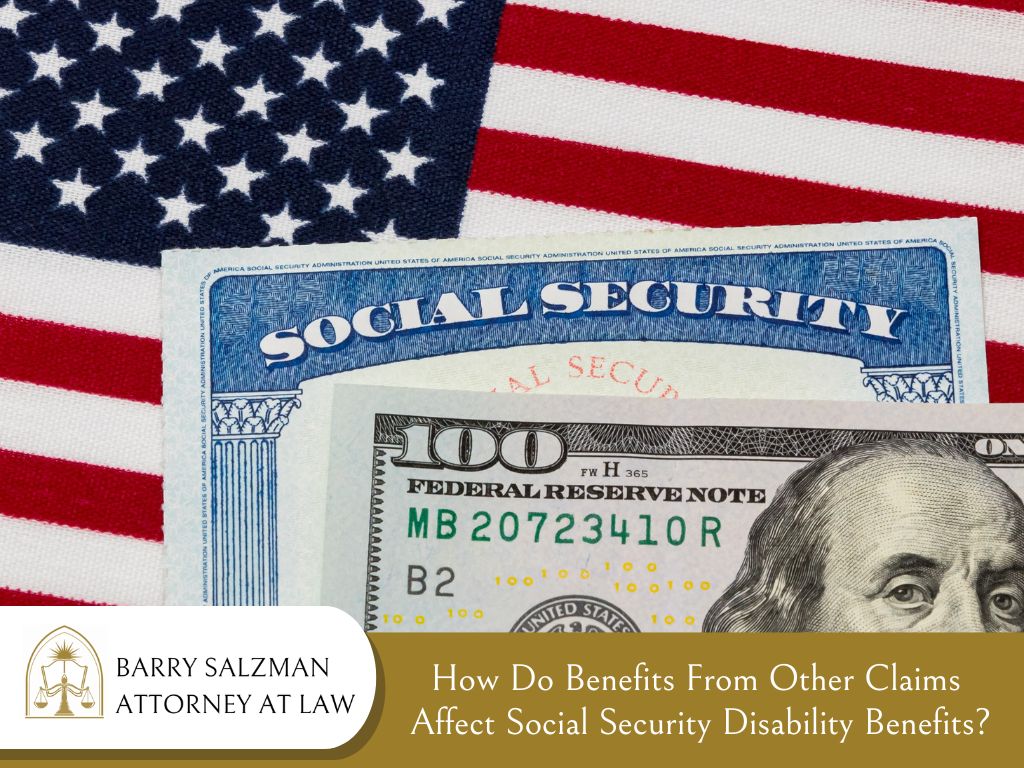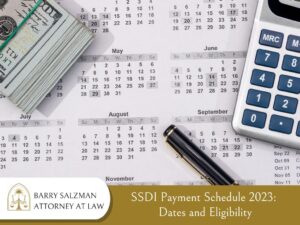How Do Benefits From Other Claims Affect Social Security Disability Benefits?

Many people seeking and receiving Social Security Disability Benefits (SSD) and Supplemental Security Income (SSI) may have other claims based on disability, including workers’ compensation (WC), short and long-term disability, and state and federal employment disability and retirement benefits. Except for WC benefits, other sources of disability benefits do not affect the amount of the SSD benefit. However, other disability benefit programs may reduce their benefit due to concurrent receipt of SSD benefits.
Impact of Short-Term Disability Benefits on SSD
Short-term disability (STD) benefits provided under employer-sponsored employee benefit plans are not subject to reduction for SSD. This is because STD benefits are usually paid for no more than the first six months of disability. SSD benefits do not begin until the 6th month after the onset of disability.

Long-term Disability (LTD) Benefits and Offset with SSD
Long-term disability (LTD) benefits don’t begin until STD benefits have been exhausted. LTD benefits provided under an employer-sponsored employee benefit plan uniformly require a reduction of LTD benefits due to receipt of any other disability benefit, including SSD. This reduction is normally a dollar-for-dollar offset. The offset will not include that part of SSD benefits paid for attorney fees in the SSD claim.
If LTD benefits are being paid before receipt of SSD benefits, LTD plans allow for an election to apply the reduction of LTD benefits when the LTD benefit begins, or you may defer the reduction until SSD is awarded. In the latter case, this will result in an overpayment of LTD benefits, which you will have to pay back to the LTD carrier out of your retroactive SSD benefits.

Federal and State Disability Retirement Benefits on SSD
Disability retirement benefits available through the Federal Employee Retirement System (FERS) also have similar provisions. State retirement systems may also have similar provisions. LTD benefits are provided under an employer-sponsored plan, and FERS uniformly requires that you make an application for SSD benefits as a condition of receiving LTD and federal disability retirement benefits. Failure to obtain SSD benefits does not necessarily end payment of LTD or FERS benefits.

For more information about federal employee disability retirement benefits, click here.
Workers’ Compensation and SSD Benefits
Federal law provides that if SSD benefits are recovered for a period during which you have also received WC benefits, the combination of the SSD benefit and the WC benefit cannot exceed 80% of the employee’s “average current earnings,” which is a calculation of average monthly earnings over the period you have worked prior to becoming disabled. SSD benefits are reduced if the combination of benefits exceeds the 80% figure. However, federal law provides that state WC laws may elect to apply the offset to state WC benefits instead of the Social Security Administration.
SSA may not apply the reduction of benefits if your state elects to apply the reduction of WC benefits. However, the failure of the WC carrier to apply the offset does not preclude SSA from reducing SSD benefits. This reduction of SSD or WC benefits also applies to money received in a WC settlement.

Workers’ Compensation Settlements
WC settlements may be based on money paid for past-due WC benefits as well as future WC benefits. WC benefits include both disability compensation and medical benefits. It is extremely important that your WC settlement clearly define the amount of the settlement allocated for past-due benefits and the period of time those benefits were due, the amount of the settlement allocated for future disability compensation benefits over your life expectancy, and the amount of the settlement allocated for future medical benefits over your life expectancy.
Without this breakdown, SSA may consider the total amount of the settlement to represent payment of disability compensation, thereby increasing the amount of the offset. If your state allows WC to take the SSD offset, it is important that the settlement clearly states the offset has been considered in the calculation of the WC settlement to avoid potential duplicate offsets by state WC and SSA.
Supplemental Security Income (SSI) and Other Income
SSI is a means-tested benefit, meaning that all other income sources (with a few exceptions) serve to reduce the amount of the SSI benefit dollar-for-dollar. For this reason, we can eliminate further discussion of SSI benefits.
Takeaways From the Foregoing:
- There must be close cooperation between attorneys representing you in your WC and SSD claims to avoid incorrect and inaccurate offset of WC benefits.
- You must notify your LTD carrier and FERS when you claim SSD benefits.
- You must be prepared to reimburse the LTD carrier if you are awarded SSD after your LTD benefits have commenced and you did not elect to reduce LTD benefits before receipt of SSD.
- Withdrawal of a claim for SSD may result in denial or cessation of both LTD and FERS benefits.
- Failure to reimburse LTD and FERS for overpayment of benefits due to SSD may result in cessation of LTD and FERS benefits.
Need Help with Your Disability Benefits?
If you are confused about how other disability benefits may impact your SSD or SSI benefits, it is recommended to consult with a qualified attorney knowledgeable in both SSD and WC laws. Reach out to Attorney Barry Salzman today at (727) 321-4993 to navigate the complexities of benefits integration and ensure you receive the maximum amount of benefits available to you. Remember, getting the proper guidance is crucial for correctly handling your benefits from other claims and greatly affecting your Social Security Disability Benefits.
Schedule Your Consultation Today
Navigating the bureaucracy of any disability program is complex and frustrating and often ends in denial.
Don't do it alone! Have a dedicated, experienced advocate on your team.
Fill out the form below or give us a call at 727-321-4993.



